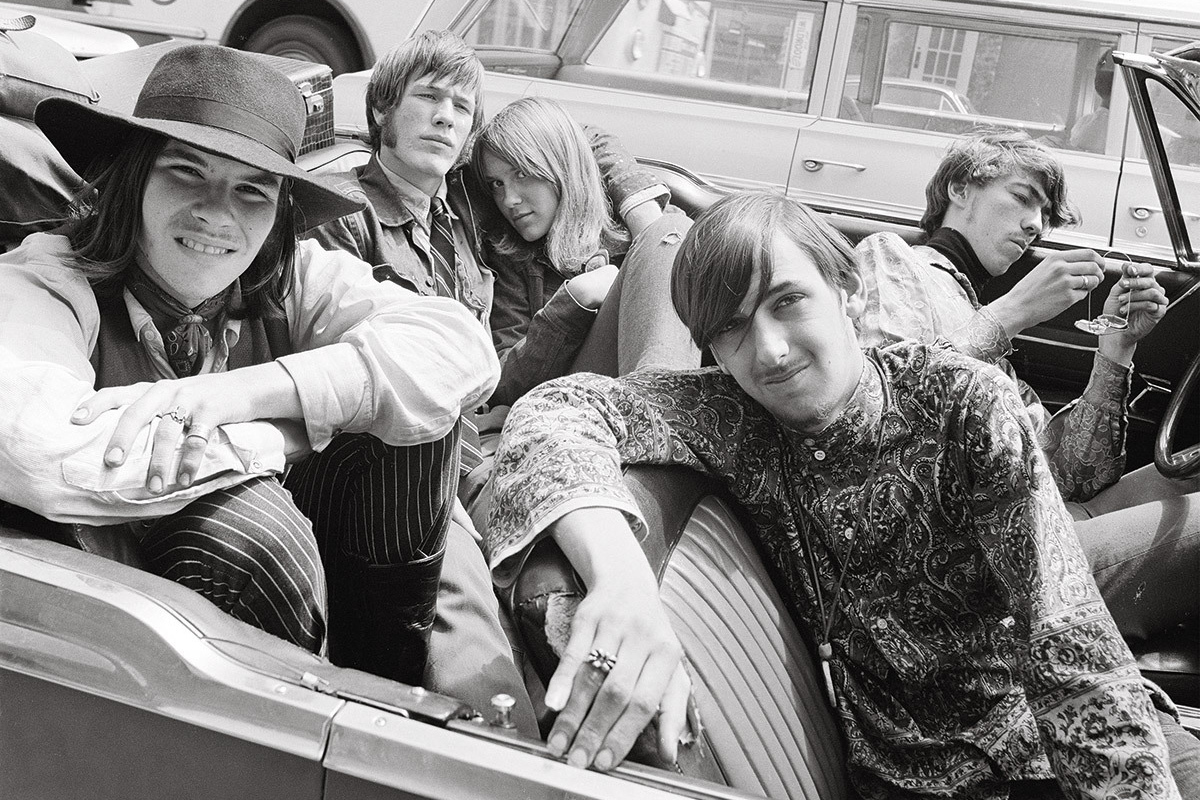Gallery of 10 photos
the slideshow
“It was the best of times, it was the worst of times.” So goes the famous line from A Tale of Two Cities by Charles Dickens.
The same could be said of Haight-Ashbury during what editor Kevin Moore describes as “the downslide of the Summer of Love” in the intro to a new collection of striking images from rock & roll photographer, Elaine Mayes.
Haight-Ashbury Portraits 1967-1968 documents late ’60s San Francisco—a tumultuous time for the city and country, when much of the wide-eyed optimism of the hippie movement butted up against hardship and addiction. The recently released 100-page compendium features images of smiling and barefoot youth interspersed with those of somber single mothers clutching babies in rooms ranging from barren to chaotic.
A portrait of a glassy-eyed couple sitting in the grass with a naked child stands in sharp contrast to a composed and hopeful family portrait of an interracial couple with their child in Golden Gate Park. At times, the images offer a vision of a better tomorrow. In other instances, they grapple with poverty and disillusionment. All of them contend with the wide-ranging legacies of free love and 1960s counterculture.
“She [Mayes] saw the consequences of the lifestyle,” said Moore, the book’s editor and the artistic director and curator of the photography nonprofit FotoFocus, which funded it. “A lot of those kids [had] been crashing into flophouses, having sex and doing drugs, and they were starting to show the signs of a breakdown.”
But Moore is quick to note that Mayes—who captured many of the book’s photos while living in a commune on Central Street and tagging along with Washington Post journalist Nicholas von Hoffman—did not seek to pass judgment on her subjects. Rather, she sought to show them as they were.
Photographing in a more photojournalistic style, Mayes would find her subjects, ask them to pose themselves as they wished, instructed them to take a breath, exhale and then triggered the shutter, Moore describes.
“She wanted them to present themselves as they wished to be presented,” Moore said. “She was trying for something that was very calm and a kind of placid moment in the midst of what she saw as being fairly chaotic lives.”
So while Joan Didion was finding that “the center was not holding” in her assessment of Haight-Ashbury, Mayes may have found some calm in the eye of the storm, or at least framed the chaos of the Summer of Love in 1967 as a universal pain point—that of growing up and losing one’s innocence.
“There’s a sense of potential and letdown at the same point in time,” Moore said. “And if you go almost picture-to-picture, sometimes in a single picture, you can see both of those edges of this particular moment that’s kind of sandwiched between a year of great optimism and beauty and this other sort of harder reality that sets in by ’68, ’69.”
Ultimately, Moore observes that even more than half a century later the young people pictured in Mayes’ photos radiate a certain timelessness. Whether it’s their cock-eyed optimism or eerily of-the-moment fashion statements, Mayes’ subjects still look and feel forever young—their hopeful and hopeless youth crystallized for decades more to come.
“It’s just this precious moment in the middle of two extreme, different realities,” Moore said.
Available at local and online bookstores
elainemayesphoto.com
